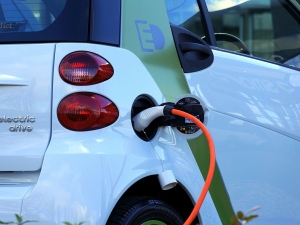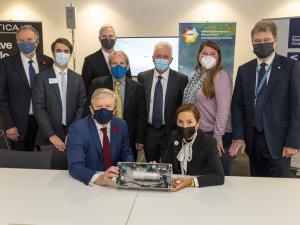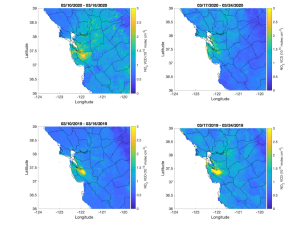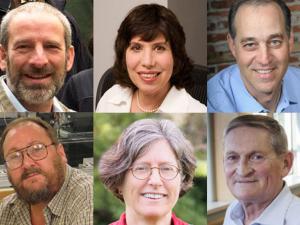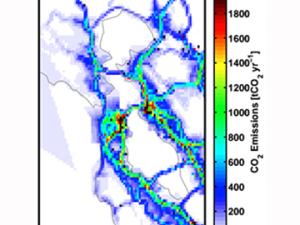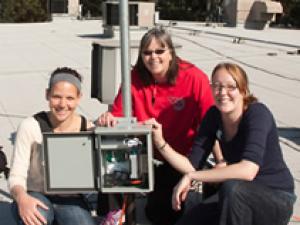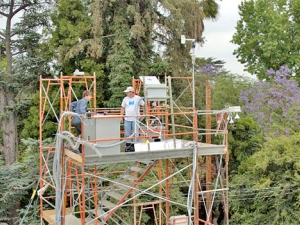

Research Bio
Ronald Cohen's research aims to describe and understand the connections between human activities, greenhouse gas emissions and poor air quality. In his research project, BEACO2N, he and his team are operating a neighborhood scale long-term observing system for tracking CO2 and air quality: http://beacon.berkeley.edu/about/. This project was one of three “Climate Data in Action” efforts recognized in the Obama administration’s Climate Data Initiative in summer 2014. The project is following trends in CO2 and related gases and aerosol in cities including the Bay Area and Los Angeles in California, Providence, RI and Glasgow, Scotland. The project is reporting on trends in CO2 emissions with short lag times, km scale resolution and the ability to pinpoint emissions by economic sector. In other research his fundamental chemical research on organic nitrates established that these molecules are the main path for removal of atmospheric nitrogen oxides on the continents. His research using satellite measurements of nitrogen oxides has established new methods for achieving accurate interpretation of trends in urban chemistry: http://behr.cchem.berkeley.edu/. He has published extensively on the links between high temperatures and poor air quality--identifying key aspects of atmospheric chemistry that are unimportant most of the time but play the primary role in governing what people are breathing when it is hot.
Research Expertise and Interest
climate, greenhouse gases, air pollution, atmospheric chemistry, environmental chemistry, analytical chemistry, ozone, nitrogen oxides, CO2, clouds, Atmospheric Aerosol
In the News
EVs Are Lowering Bay Area’s Carbon Footprint
Using Berkeley Technology, Glasgow Debuts New GHG Monitoring Network
With drop in LA’s vehicular aerosol pollution, plants emerge as major source
Drop in pandemic CO2 emissions previews world of electric vehicles
Coronavirus impact: Maps show pollution has dropped in the Bay Area since shelter-in-place orders
Six UC Berkeley faculty elected AAAS fellows
Berkeley air-monitoring project wins White House nod
The White House has given a public nod to a ground-breaking UC Berkeley air-monitoring project and its new collaboration with a Colorado public media platform, which aims to build a citizen-science story-corps to help monitor carbon emissions in the Bay Area.
UC Berkeley Chemists Installing Carbon Dioxide Sensors in Oakland
Using inexpensive detectors that can fit inside a shoebox, UC Berkeley chemists are installing carbon dioxide and other air pollution sensors in 40 sites around Oakland to explore how detailed, neighborhood-by-neighborhood information can help communities monitor greenhouse gas and other harmful emissions.
There’s something in the California air
UC scientists built and worked in towers — some as tall as 1,500 feet — as part of the largest single atmospheric research effort in the state. The data they’ve collected will guide policymakers dealing with air pollution.
Featured in the Media
We observed that the total emissions of CO2 over a five-year period from 2018 to 2022 and the total emissions decreased a little less than 2%. And we attribute that change to the tremendous increase of electric vehicles on the roads here in the Bay Area,” said Ronald Cohen, professor of atmospheric science. This study was reported on Berkeley News.

